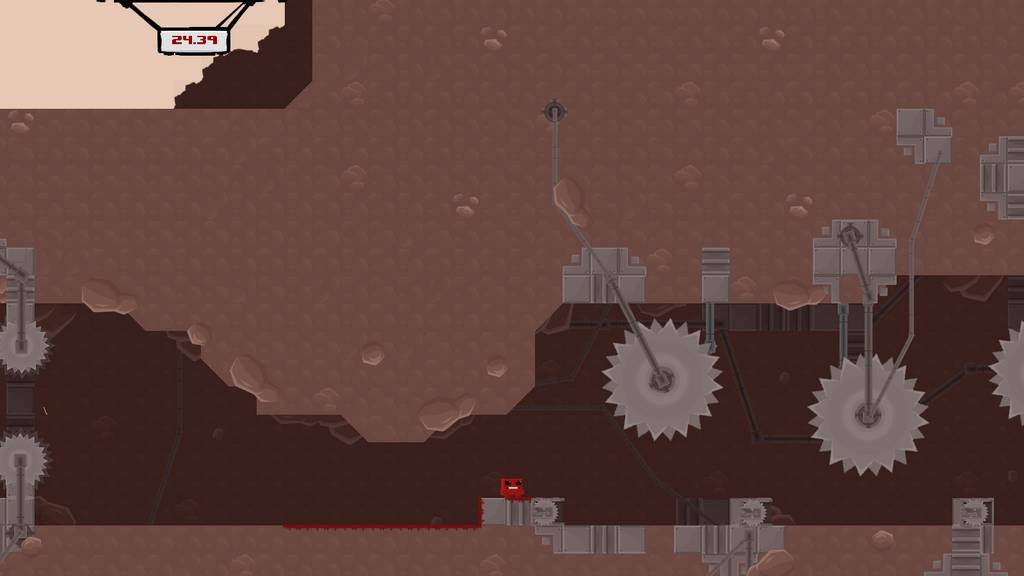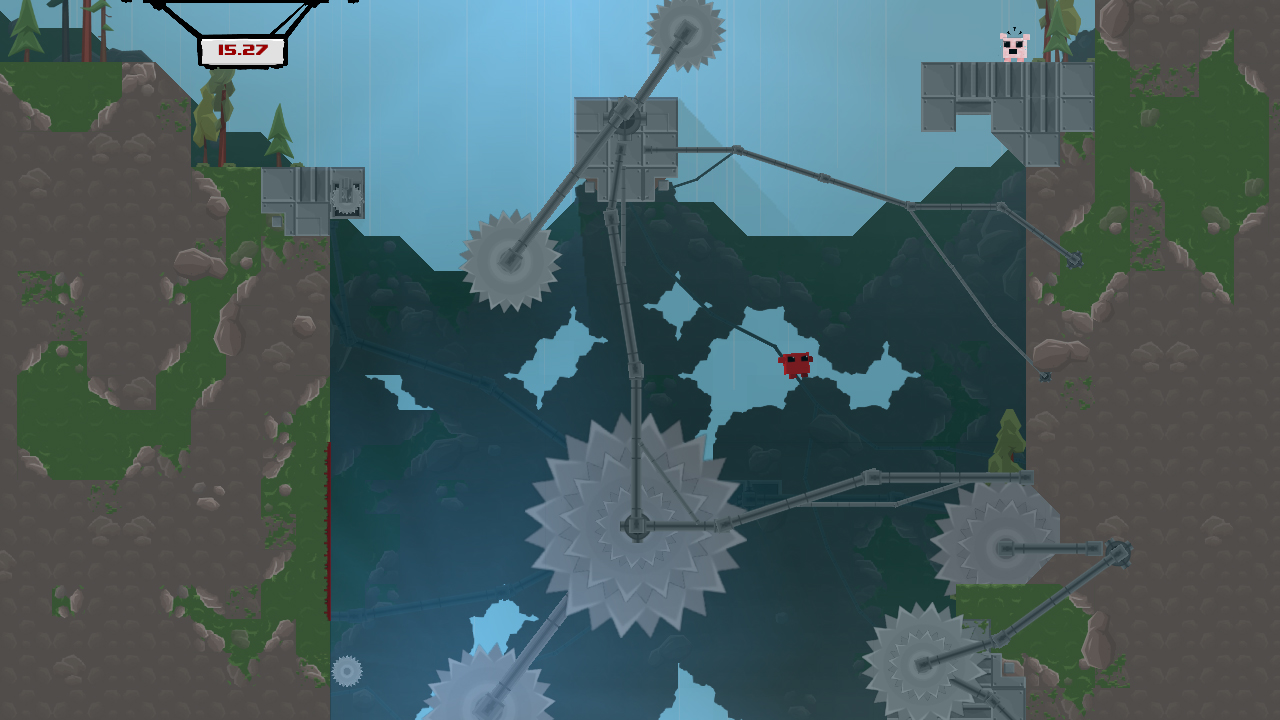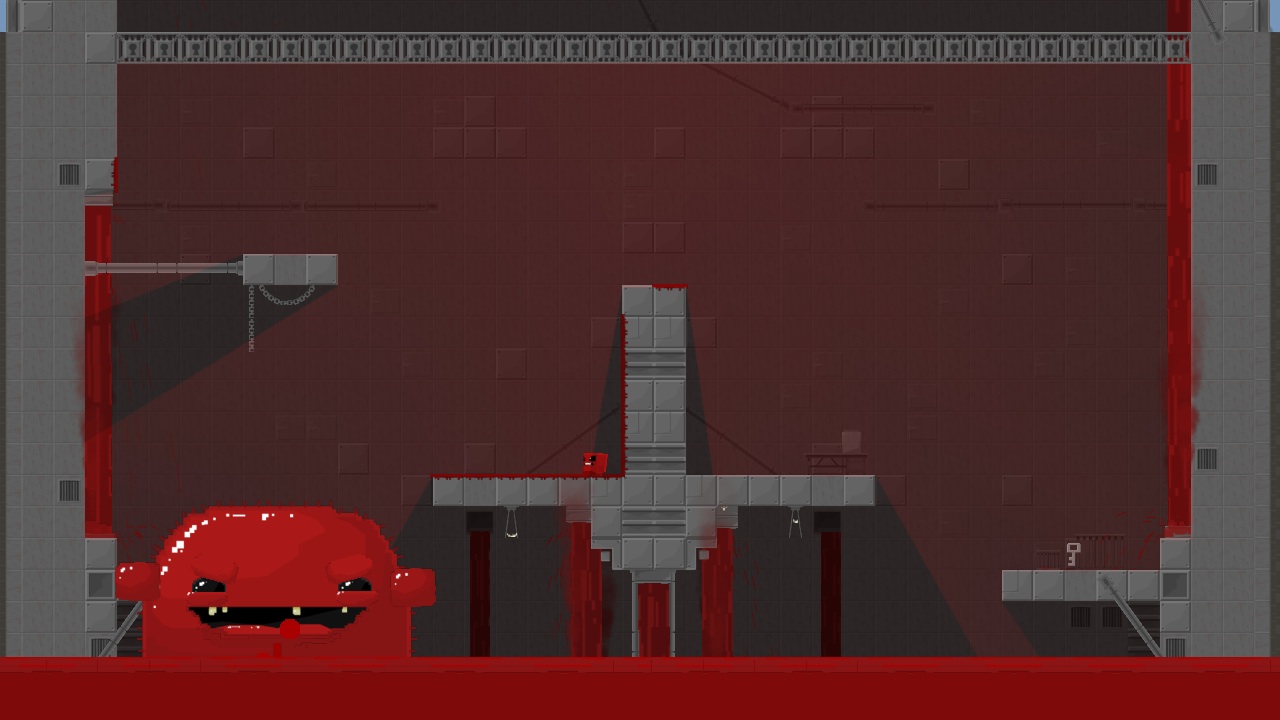Review: Super Meat Boy
Written by Ben Vollmer
Super Meat Boy is hard. The kind of difficult that will shake your faith, more than once, in what kind of gamer you really are. Difficulty is Super Meat Boy’s most intriguing mechanic in a genre that has failed, for better or worse, to really evolve since its inception.
Every player’s death count will vary. Depending on your fortitude, or foolhardy determination (in my case), you may not finish the game at all. I died 2,874 times in my playthrough of Super Meat Boy. Each death a little more draining than the last. On the surface, this may sound frustrating. While each death may be a little more taxing, each success is more gratifying for it. Super Meat Boy put an attainable carrot at the end of the stick, you just have to reach hard enough for it.

Each level of the game, of which there are about 110 in the “vanilla” experience, combined with several more “dark” levels, is short and sweet. Even as they lengthen toward the end, you’re never there much longer than a minute for a successful run. With just a couple controls to master, a sprint button (that can pretty much be held for the duration of the game) and a jump button (of which there are various levels of height based on the force of your button press), the game has really tight and precise controls. This is good, because you absolutely need them to transverse the terrain.
Visually, the levels aren’t very distinguished. There’s a grey pallet with splashes of red, most of which is the blood of your many deaths. The game has a wonderful little memory system, where all of your deaths can be viewed in a replay when you finish the level. Moreover, you can see where you died via a deep red blood streak. It’s fascinating and demoralizing all at once, giving you all the more reason to get through the level as quickly as possible.

Inside the levels are various buzz saws, which tend to be the second most lethal cause of death in the game (behind sheer gravity), various enemy types (most of which are active, which is different for the gene) and several types of dangerous platforms, including those with metal spikes. There’s enough variation in the design that no two levels feel exactly the same, and the game works on one of the best difficulty curves we’ve seen in a game yet. As you get better at the game, the games choicely throws new challenges your way.
Super Meat Boy is a game based on constraints. Everything must be done within the few powers Meat Boy has been given, and that focus shows by end game. If you make it that far, it’s almost a crash course on the genre as a whole. You’ll be much better going out than you came in, jumping and running from one territory to the next. The minimalistic attitude is an excellent contrast to more popular platformers like Super Mario Maker, feeling almost retro by design.

If there’s a fault to be had, it’s that some of the best elements of the game are too few and far between. The game’s bosses are excellently designed, but they can be extremely short (especially if you grasp the concept easily enough) and only occur a handful of times. Thankfully, the game saves its best for last with an excellent chase sequence from the game’s villain, Dr. Fetus. It’s a reminder of what a bigger, perhaps slightly more ambitious title may have looked like.
For such a small game, its impact feels gigantic. Released in 2010, Super Meat Boy precedes the wave of popular indie titles dating back to the last generation of consoles. It’s a game, at the end of the day, that shows how much you can do with so little.
